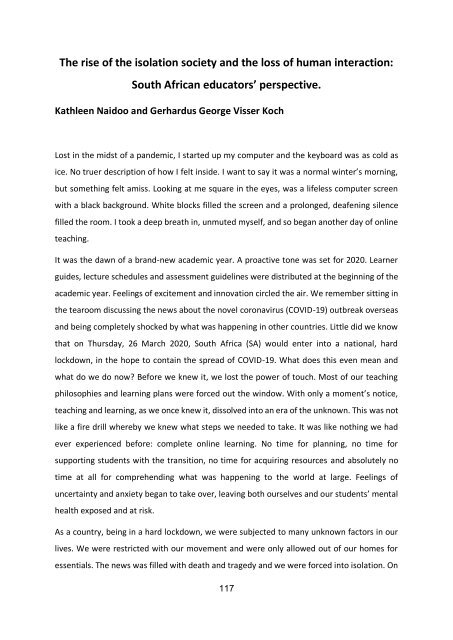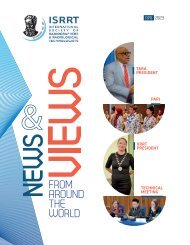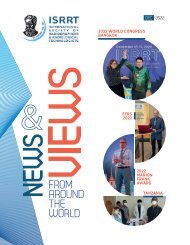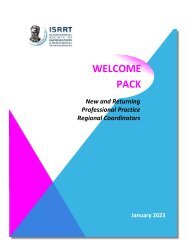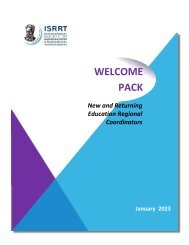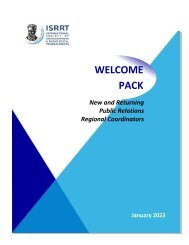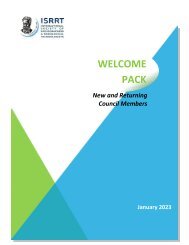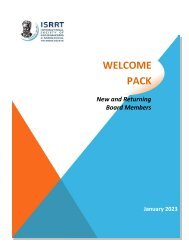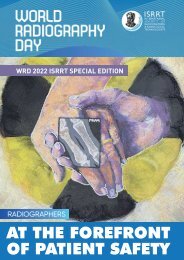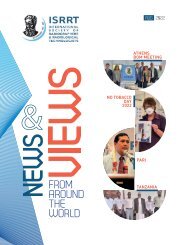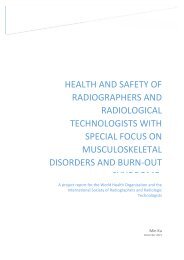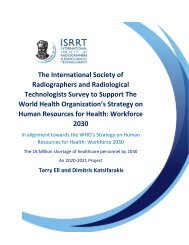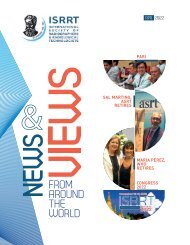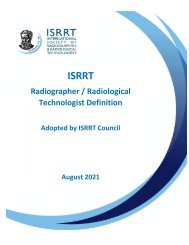ISRRT_COVID-19_book
You also want an ePaper? Increase the reach of your titles
YUMPU automatically turns print PDFs into web optimized ePapers that Google loves.
had to endure load-shedding (power interruptions) which impacts negatively on the services<br />
in healthcare, education and the business industry. Each zone in the specific region of the<br />
various provinces in South Africa are scheduled for load shedding at specific times of the day.<br />
As a result of these interruptions, certain students were without electricity and could not<br />
access the internet to engage in teaching and learning activities on the online platform. In<br />
order to overcome this, the online lectures conducted on Microsoft Teams were recorded<br />
whilst engaging with the students who had connectivity and then the link to the online lecture<br />
recording was shared with all students via the learner management system (Blackboard),<br />
WhatsApp and email. This provided students with an opportunity to access the recorded<br />
online lecture sessions at any time and allowed them to go back to the recording if they were<br />
uncertain of a particular concept. Furthermore, internet accessibility and network coverage<br />
also remain a challenge for certain students as some reside in rural areas and have limited<br />
network coverage, resulting in intermittent access to the internet and online classes.<br />
To further compound the issue of connectivity, students could not access the internet to parttake<br />
in online classes and access teaching and learning material due to the lack of an<br />
appropriate computer device. In addition to this, the lack of a computer prevents students<br />
from adequately completing assignments, case reports and engaging in online assessments.<br />
These students either need to borrow a computer from their peers or visit an internet café,<br />
thereby incurring additional cost. Where possible, hard copies of all the teaching and learning<br />
material were posted to those students via the postal service to ensure that they were not<br />
left behind in the higher education (HE) system.<br />
Students who had access to an appropriate computer device (e.g. laptop) and a mobile phone,<br />
were provided with e-copies of teaching and learning content via various platforms such as<br />
WhatsApp, email and Blackboard. All platforms of communication were exhausted to ensure<br />
that all students received the teaching and learning content for successful completion of the<br />
2020 academic year.<br />
Affordability of data was another challenge that had to be solved. To this end, the university<br />
provided all students with a 30 Gigabyte mobile internet data bundle every month, to be used<br />
for academic teaching and learning purposes. In order for students to be recipients of the<br />
114


